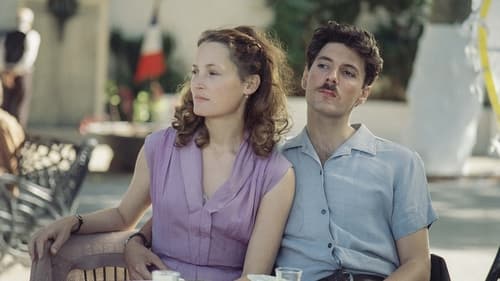
1956. Algeria is a French colony. Fernand and Helene are madly in love. Fernand is an activist, fighting for independence alongside the Algerians. Helene is fighting for Fernand’s life. History will irrevocably change the course of their destiny.

Editor
In the Algerian desert in her relay, for a cigarette, a coffee or eggs, a woman welcomes truckers, vagabonds and dreams... Her name is Malika.

Screenplay
In the Algerian desert in her relay, for a cigarette, a coffee or eggs, a woman welcomes truckers, vagabonds and dreams... Her name is Malika.

Director of Photography
In the Algerian desert in her relay, for a cigarette, a coffee or eggs, a woman welcomes truckers, vagabonds and dreams... Her name is Malika.

Director
In the Algerian desert in her relay, for a cigarette, a coffee or eggs, a woman welcomes truckers, vagabonds and dreams... Her name is Malika.

Director of Photography
Originally there was a silence. That of Malek, the filmmaker’s father, who for years said nothing of his childhood in Algeria. And then, the need to break the silence, with a script that he gives to his children, to start telling his story. Several years later, the father and daughter finally make the journey to Mansourah, his native village: seeing his house, meeting other men who experienced the same heartbreak. Little by little, the film reveals what Malek, like many others, has long kept quiet about.

Director
To the west of Seriana, the world stops turning for an instant under the heat of the sun, due to a flat tyre... This film is part of the Minutes 2016 collection initiated by the GREC (Groupe de Recherches et d’Essais Cinématographiques) created in 1969 by Jean Rouch, Pierre Braunberger and Anatole Dauman to support the creation of first short films.

Director
In the largest slaughterhouse in Algiers, men live and work in closed to the throbbing rhythms of their tasks and their dreams. Hope, bitterness, love, paradise and hell, the football stories as of the Chaabi and Rai melodies that set their lives and their world.

Screenplay
A walk through the Cervantes district of Algiers in search of characters and stories rooted in this city, from Tarzan & Jane to Don Quixote. Reality and fantasy merge as the collective memory of a district and film history come together.

Cinematography
A walk through the Cervantes district of Algiers in search of characters and stories rooted in this city, from Tarzan & Jane to Don Quixote. Reality and fantasy merge as the collective memory of a district and film history come together.

Director
A walk through the Cervantes district of Algiers in search of characters and stories rooted in this city, from Tarzan & Jane to Don Quixote. Reality and fantasy merge as the collective memory of a district and film history come together.

Director
A teenager describes the painting he sees off-screen. He highlights the thoughtful nature of the person facing him. Two other young persons then engage in the same exercise. Projections and fantasies, social and cultural issues. We are in the Museum of Fine Arts of Algiers where Hassen Ferhani casts his simultaneously tender and lucid gaze.

Director
In the heat of Algiers, the camera follows and accompanies Ibrahim, Adam, and Ismael, originally from sub-Saharan Africa, who live in this hotel with the predestined name. They work odd jobs. One is a lift operator in a building, the second is a shoemaker and the third works in the building sector.

Director
A panoramic shot over the terraces of Algiers. The camera zooms in and out, seeming to unexpectedly capture the private daily conversations of the inhabitants of Algiers. With this short essay, the filmmaker wants to show "Algerian society’s openness to the world and to modern ways, as well as its contradictions with regard to traditions.”













